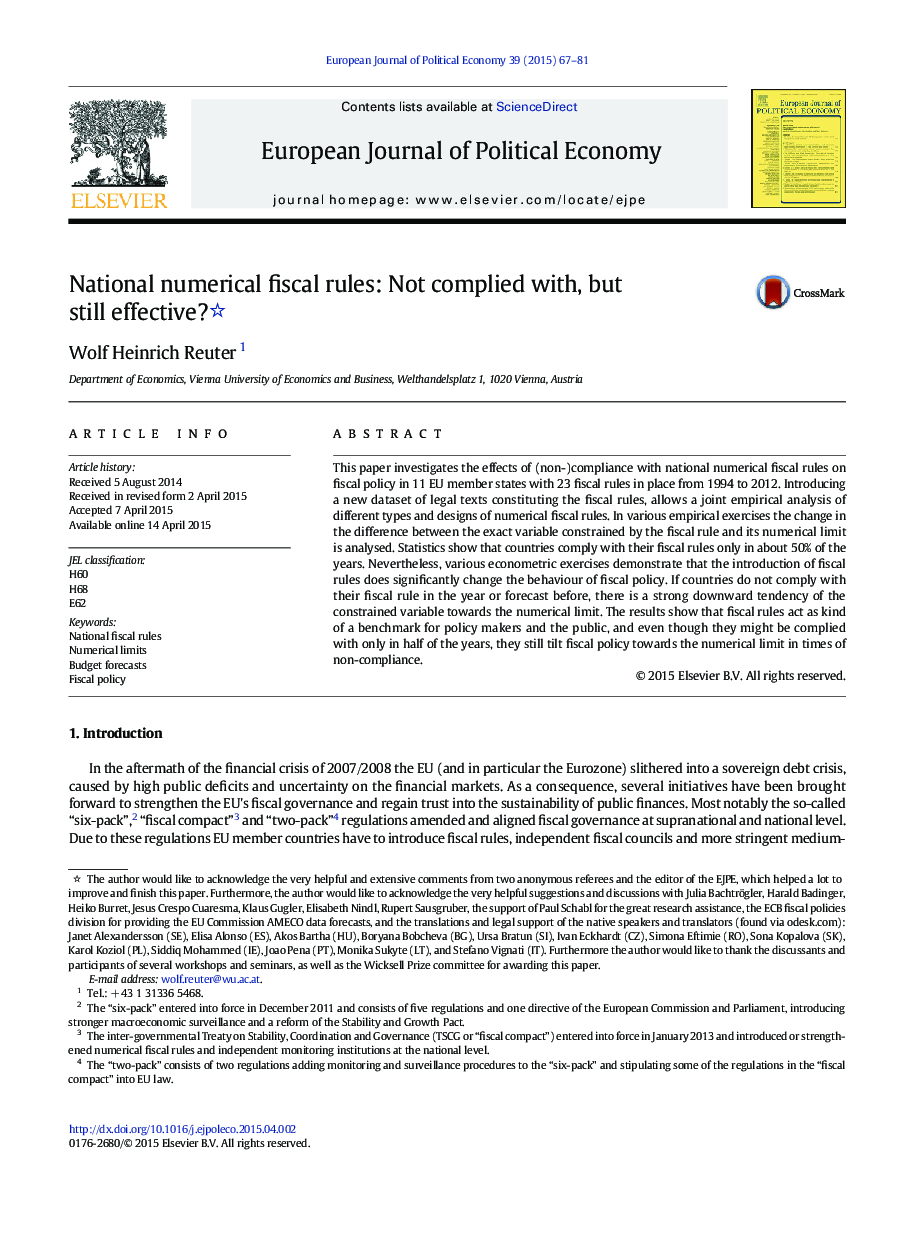| Article ID | Journal | Published Year | Pages | File Type |
|---|---|---|---|---|
| 5067926 | European Journal of Political Economy | 2015 | 15 Pages |
Abstract
This paper investigates the effects of (non-)compliance with national numerical fiscal rules on fiscal policy in 11 EU member states with 23 fiscal rules in place from 1994 to 2012. Introducing a new dataset of legal texts constituting the fiscal rules, allows a joint empirical analysis of different types and designs of numerical fiscal rules. In various empirical exercises the change in the difference between the exact variable constrained by the fiscal rule and its numerical limit is analysed. Statistics show that countries comply with their fiscal rules only in about 50% of the years. Nevertheless, various econometric exercises demonstrate that the introduction of fiscal rules does significantly change the behaviour of fiscal policy. If countries do not comply with their fiscal rule in the year or forecast before, there is a strong downward tendency of the constrained variable towards the numerical limit. The results show that fiscal rules act as kind of a benchmark for policy makers and the public, and even though they might be complied with only in half of the years, they still tilt fiscal policy towards the numerical limit in times of non-compliance.
Keywords
Related Topics
Social Sciences and Humanities
Economics, Econometrics and Finance
Economics and Econometrics
Authors
Wolf Heinrich Reuter,
